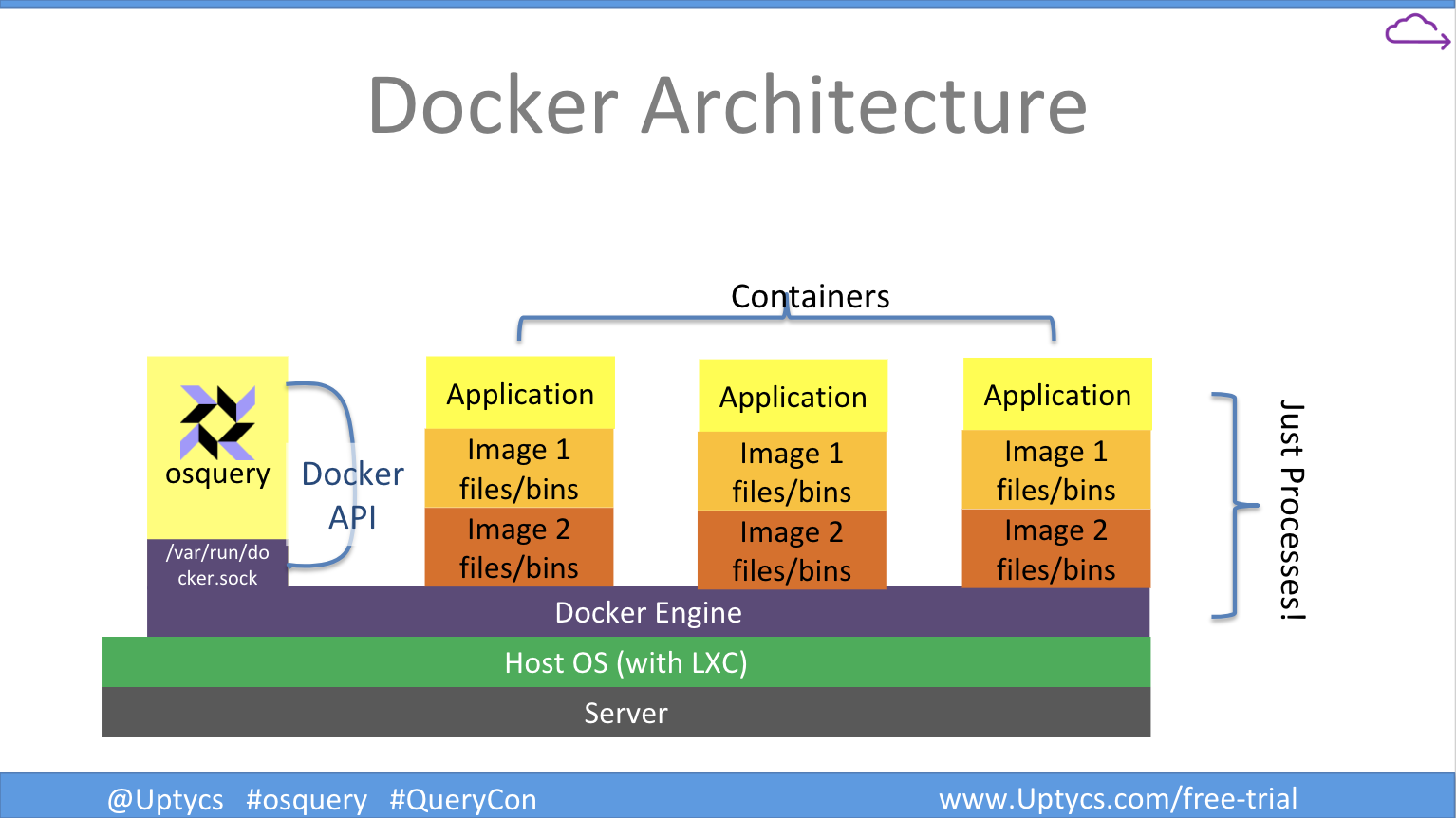

Large-scale host monitoring: Osqueryd, which is regarded as the high-performance host monitoring daemon, allows you to schedule queries for execution across your infrastructure.Powerful Performance Diagnosis: With the help of SQL power and highly useful built-in tables, Osqueryi is an invaluable and very aggressive tool for diagnosing systems operations problems, troubleshooting a performance issue, etc.It also helps in understanding various processes, kernel modules, active user accounts and active network connections. Interactive Query Console: Osqueryi equips a SQL interface that helps to explore the operating system with various queries.The flexible and highly modular codebase is the core advantage of Osquery which helps its users to dive deep in researching more ways of implementing the new query concepts, thus developing new applications and tools further. Osquery is a framework with documented public APIs, which in turn can be used in creating new tools and products as required. Osquery can collect the data elements easily from the following: Running Processes It can also be used as an alternative to operating system’s service manager to start/stop/restart Osqueryd. Osqueryctl: A helper script for testing a deployment or configuration of Osquery.Osqueryd: A daemon for scheduling and running queries in the background.Osqueryi: The interactive Osquery shell, for performing ad-hoc queries.Upon successful installation, Osquery gives you access to the following components: It is officially described as “SQL-powered operating system instrumentation, monitoring and analytics” framework and originated from Facebook. To put it straight, Osquery is a cross-platform operating system instrumentation framework that supports all the recent versions of macOS, Windows, Debian, rpm, Linux. Osquery is one such boon for all the security researchers, legitimizing them with the most powerful option to check the status and configuration of firewalls which perform security audits and implement the threat intelligence. Imagine a completely open-source tool which empowers you with monitoring the high-end file integrity by turning your operating system as a vast database. Thanks! curl errorīeta Was this translation helpful? Give feedback.Osquery is a universal system security monitoring and an intrusion tool which specially focuses on your operating system. Would really appreciate some guidance here. Not sure what to try next or if I'm even on the right track/using the right architecture for what I'm trying to achieve.

When using curl -v -X POST to troubleshoot it throws an "unable to get local issuer certificate" error (see below) (should I maybe use the cert at /etc/ssl/certs/intca.crt instead of the one fleet provides as fleet.pem? Or /etc/so-launcher/roots.pem?).tried to enroll the manual way on Ubuntu following the instructions in the "add new host" button on fleet (changed server ip and port in the flagfile, used the server certificate and secret they provide, run with osqueryd -flagfile=flagfile.txt -verbose) throws a "certificate verify failed" error (see below).tried to enroll with the package on mac (changed the address and port in the launcher.flags file along with the other steps recommended in the documentation).enrollment with these packages failed as they don't know to point to the NAT'ed ip of the manager (the WAN address of the router on port 8090).regenerated osquery install packages with sudo salt-call state.apply fleet.event_gen-packages.run so-allow to allow osquery endpoints on the client range.have confirmed that this rule works by listening on the manager with tcpdump and sending packets from the client network with netcat.added NAT rule on our firewall so that machines on the client network can reach the manager node on port 8090 at the edge router's ip.I am now however having some trouble getting "off network" (on the client's network) endpoints enrolled. Using the standard distributed architecture with fleet running on the manager I was easily able to get "on network" (in the same subnet as the manager) osquery endpoints enrolled and functional. Trying to build out a model of a managed security service provider where we have a security onion manager node and search node on our network and a hypervisor with a security onion forward node (and some other services) deployed to multiple clients. First, let me describe what I'd like to achieve: Have run into some trouble getting osquery/fleet set up for a particular use case that I have.


 0 kommentar(er)
0 kommentar(er)
